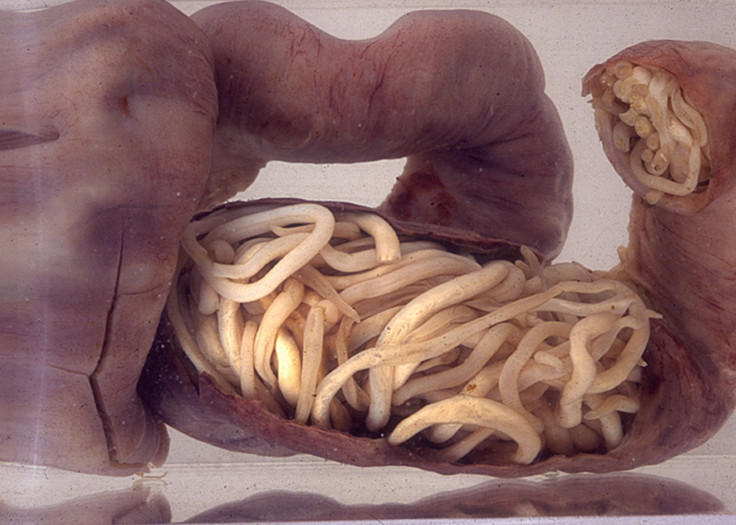Intestinal Worms May Boost Our Immune System By Communicating With Gut Bacteria

Though certainly one of the more terrifying foreign invaders to call our body home, intestinal parasites such as the hookworm are now believed to have a much more complex relationship with their hosts than might be assumed by the simple label of parasite.
In recent years, researchers from all corners of the world have contributed to a growing base of evidence linking human worm infestation to an improvement in symptoms of autoimmune disorders like asthma and irritable bowel disease. Much of this evidence has been compelling but circumstantial (though there’s been some small human trials), and it’s been difficult to pin down how exactly worm infestation influences and ultimately boosts a host’s immune system against autoimmune disorders.
Now, a study published Thursday in the journal Immunity claims to have provided a piece of the puzzle. Intestinal worms may actually recruit a host’s naturally occurring gut bacteria (or microbiome) as allies — a strategy which in turn subtly changes that host’s metabolism and eventually its immune system.
The study authors studied how these worms, more formally known as helminths, behaved in both pigs and mice, specifically keying on how they interacted with the microbiome. Post-infection, the microbiome of both animals began to produce more short-chain fatty acids (SCFA), a byproduct of the microbiome normally seen when attempting to digest fiber. Though there remains more research to be done on SCFAs, it’s believed that they have anti-inflammatory properties, promote colon health, and activate certain receptors of the immune system, particularly those responsible for weakening an overly aggressive immune response in the airways.
The researchers were able to find a direct connection between the introduction of helminths to SCFA production in their test subjects, demonstrating that these creepy crawlies somehow compel the microbiome to do its bidding in order to protect themselves. While this hijacking might be harmful or even deadly to the host in certain circumstances, it’s a relationship that may actually be beneficial to both (a healthy host is usually much more useful than one sick or dying).
Thought the study only involved animals, the researchers are hopeful their findings can pave the way for more expansive research that can finally figure out how to take advantage of that relationship for ourselves.
"It's not the whole story," said senior study author Dr. Nicola Harris in a statement. "But it opens up an additional, intriguing way to explain — and perhaps exploit — the strategy with which intestinal worms communicate with the host's immune system."
Source: Zaiss M, Rapin A, Lebon L, et al. The intestinal microbiota contributes to the ability of helminths to modulate allergic inflammation. Immunity. 2015.



























